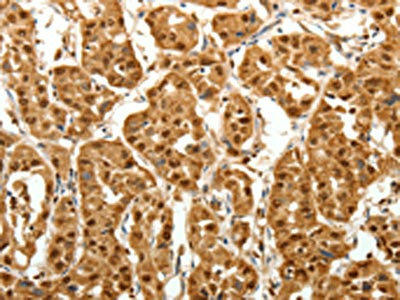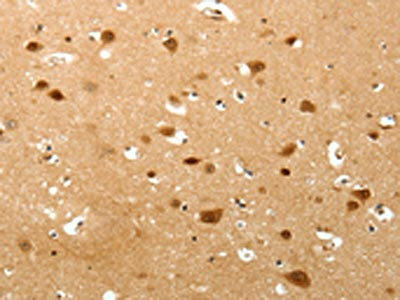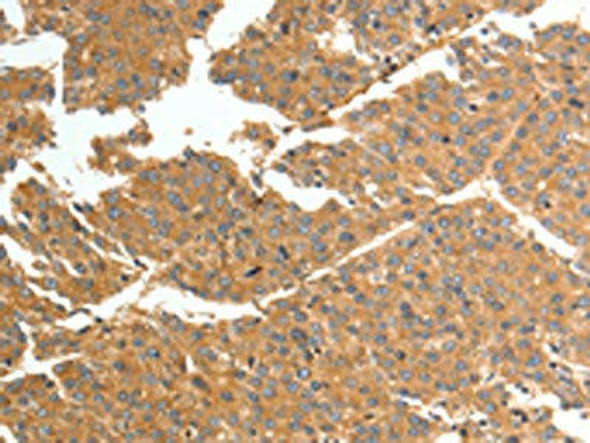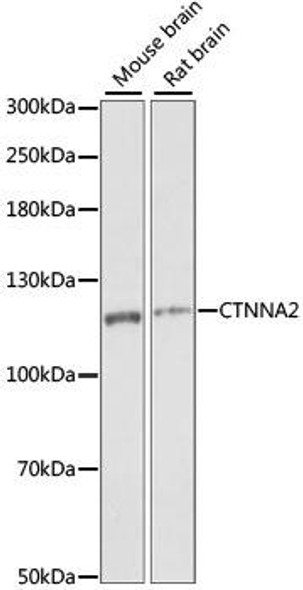Description
TNN Antibody (PACO18956)
The TNN Polyclonal Antibody (PAC018956) is a valuable tool for researchers studying TNN, a protein involved in various cellular functions. This antibody, produced in rabbits, shows high reactivity with human samples and is validated for use in Western blot applications. It specifically binds to the TNN protein, allowing for its detection and analysis in different cell types, making it an ideal choice for studies in cell biology and cancer research.
TNN, also known as an important regulator of cellular processes, plays a key role in various biological pathways, including cell division and migration. Its involvement in these processes makes it a promising target for investigating diseases such as cancer and developmental disorders. Understanding the function of TNN is essential for developing new therapeutic strategies that target this protein and its associated pathways.
| Antibody Name: | TNN Antibody (PACO18956) |
| Antibody SKU: | PACO18956 |
| Size: | 50ul |
| Host Species: | Rabbit |
| Tested Applications: | ELISA, IHC |
| Recommended Dilutions: | ELISA:1:3000-1:10000, IHC:1:50-1:200 |
| Species Reactivity: | Human, Mouse |
| Immunogen: | Synthetic peptide of human TNN |
| Form: | Liquid |
| Storage Buffer: | -20°C, pH7.4 PBS, 0.05% NaN3, 40% Glycerol |
| Purification Method: | Antigen affinity purification |
| Clonality: | Polyclonal |
| Isotype: | IgG |
| Conjugate: | Non-conjugated |
 | The image on the left is immunohistochemistry of paraffin-embedded Human lung cancer tissue using PACO18956(TNN Antibody) at dilution 1/40, on the right is treated with synthetic peptide. (Original magnification: x200). |
 | The image on the left is immunohistochemistry of paraffin-embedded Human brain tissue using PACO18956(TNN Antibody) at dilution 1/40, on the right is treated with synthetic peptide. (Original magnification: x200). |
| Background: | This protein is involved in neurite outgrowth and cell migration in hippocampal explants.It has three EGF-like domains, one fibrinogen C-terminal domain and nine fibronectin type III domains.Tenascins are extracellular matrix proteins present during the development of organisms as well as in pathological conditions.Tenascin-W, the fourth and last member of the tenascin family remains the least well-characterized one. |
| Synonyms: | tenascin N |
| UniProt Protein Function: | TNN: Involved in neurite outgrowth and cell migration in hippocampal explants. Belongs to the tenascin family. |
| UniProt Protein Details: | Protein type:Secreted; Secreted, signal peptide; Extracellular matrix Chromosomal Location of Human Ortholog: 1q23-q24 Cellular Component: proteinaceous extracellular matrix; cell surface Molecular Function:integrin binding; identical protein binding Biological Process: cell migration; axonogenesis; cell-matrix adhesion; cell growth |
| UniProt Code: | Q9UQP3 |
| NCBI GenInfo Identifier: | 81175198 |
| NCBI Gene ID: | 63923 |
| NCBI Accession: | Q9UQP3.2 |
| UniProt Secondary Accession: | Q9UQP3,Q5R360, B9EGP3, |
| UniProt Related Accession: | Q9UQP3 |
| Molecular Weight: | 144,034 Da |
| NCBI Full Name: | Tenascin-N |
| NCBI Synonym Full Names: | tenascin N |
| NCBI Official Symbol: | TNN |
| NCBI Official Synonym Symbols: | TN-W |
| NCBI Protein Information: | tenascin-N; TN-N |
| UniProt Protein Name: | Tenascin-N |
| Protein Family: | Tenascin |
| UniProt Gene Name: | TNN |
| UniProt Entry Name: | TENN_HUMAN |















